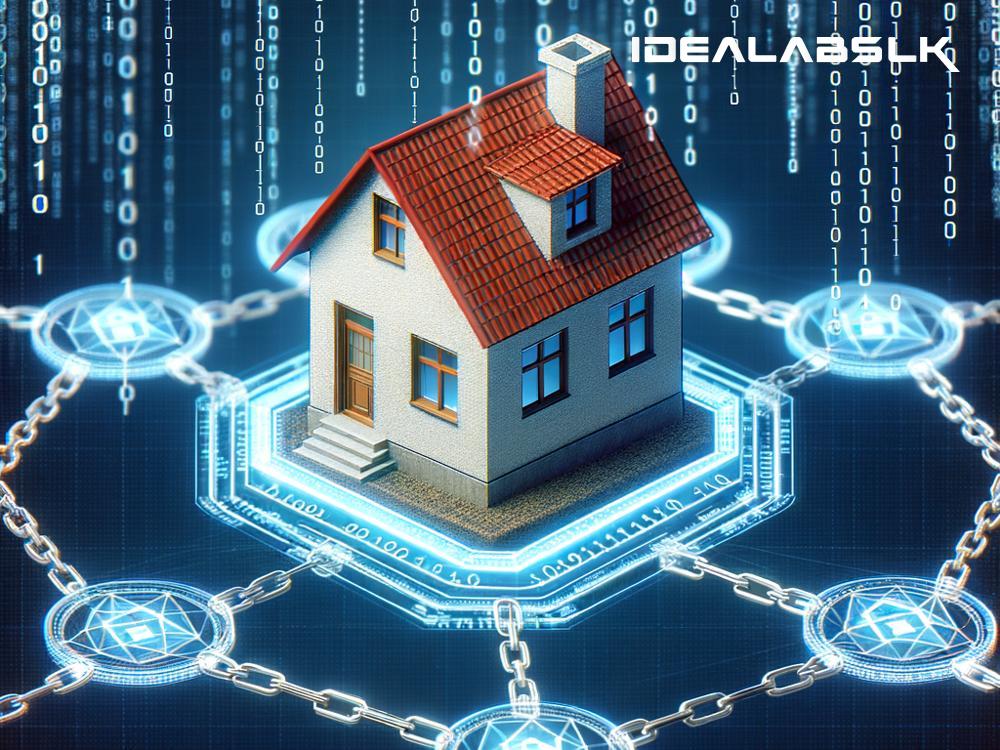Blockchain in Real Estate: The Future of Property Titles
In the ever-evolving world of technology, blockchain is a term that has been buzzing around for a while now. While it's best known for its role in the creation of cryptocurrencies like Bitcoin, the potential of blockchain technology stretches far beyond. A particularly exciting frontier for its application is in the real estate sector, especially when it comes to property titles. But what exactly does this mean? Let’s break it down into simpler terms and explore the future of property titles through the lens of blockchain technology.
Understanding Blockchain
First, let’s quickly understand what blockchain is. Imagine it as a digital ledger or a record book that's not stored in one single place but is distributed across several computers around the world. Every time a transaction is made, it's recorded in this book, verified by multiple parties, and then locked in, making it nearly impossible to alter. It’s like having a notary in every corner of the globe confirming that what you claim to own is indeed yours, only much faster and without the need for physical paperwork.
Blockchain and Real Estate: A Perfect Match
Real estate transactions are notoriously complex and filled with paperwork. Buying or selling a property involves numerous steps – from proving ownership and ensuring the property is free from liens, to transferring the title and updating public records. This complexity often makes real estate transactions slow, costly, and sometimes even error-prone. Here’s where blockchain technology can make a world of difference.
1. Simplifying Title Management
At its core, a property title is a document that proves ownership of a property. In the blockchain world, this title could be stored as a digital record. Every time a property changes hands, the transaction gets recorded on the blockchain, creating a transparent, and immutable history of ownership. This could dramatically simplify the way property titles are managed, making it faster and cheaper to buy and sell real estate.
2. Enhancing Security
Blockchain’s secure nature makes it an ideal solution for mitigating fraud in real estate transactions. Since each transaction is verified by multiple participants in the network and securely linked to previous transactions, tampering with records would require an astronomical amount of computing power, making it virtually impossible. This means that the risk of fraudulent activities, such as forging documents or impersonating the property owner, could be greatly reduced.
3. Increasing Transparency
With all property transactions recorded on a blockchain, the history of a property would become completely transparent. Potential buyers could easily verify past ownership, check for any liens against the property, and confirm that the seller is indeed the rightful owner. This level of transparency not only adds a layer of security but also builds trust in the system, making real estate transactions smoother and faster.
4. Streamlining Transactions
The traditional process of buying or selling a property involves numerous intermediaries – including real estate agents, lawyers, banks, and government bodies. This not only makes the process slower but also adds significant costs to the transaction. By using blockchain, many of these steps can be automated, reducing the need for intermediaries and making real estate transactions quicker and less expensive.
The Road Ahead
While the potential benefits of using blockchain in real estate are significant, it’s also important to recognize that the technology is still in its early stages when it comes to practical application in this sector. There are challenges to overcome, including regulatory hurdles, the need for widespread adoption, and ensuring the system is accessible to all.
However, the future looks promising. Several countries and companies are already exploring or piloting blockchain applications in real estate. As the technology matures and more stakeholders come on board, we could see a major transformation in how property titles are managed and real estate transactions are conducted.
In conclusion, blockchain technology has the potential to revolutionize the real estate industry by making transactions simpler, more secure, and more transparent. While we’re still at the dawn of this new era, the future of property titles and real estate transactions seems brighter and much more efficient with blockchain in the picture.

